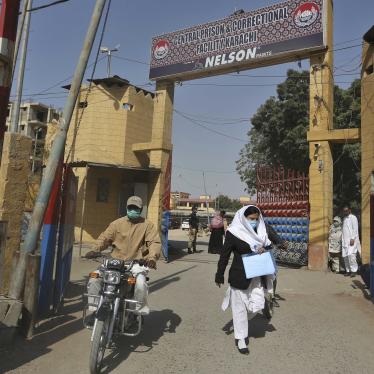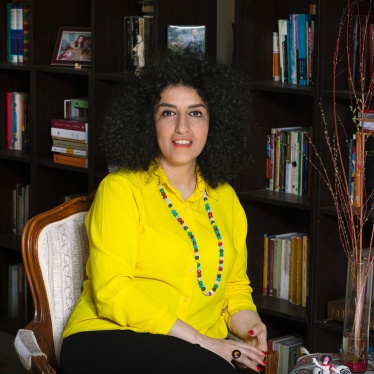(Bangkok) – Thai authorities should immediately stop using “anti-fake news” laws to prosecute people critical of the government’s response to the COVID-19 pandemic, Human Rights Watch said today. A state of emergency, slated to go into effect on March 26, 2020, heightens concerns of greater repression of free speech.
“Thai authorities seem intent on shutting down critical opinions from the media and general public about their response to the COVID-19 crisis,” said Brad Adams, Asia director at Human Rights Watch. “The Emergency Decree provides the government a free hand to censor free speech.”
On March 23, police arrested Danai Ussama at his art gallery in Phuket, and brought him to the Crime Suppression Division in Bangkok. He was charged with violating section 14(2) of the Computer-Related Crime Act for “putting into a computer system false computer data in a manner that is likely to cause panic in the public.” If found guilty, he faces up to five years in prison and a fine up to THB100,000 (US$3,050).
The charge is based on a complaint that Airports of Thailand PCL, the national airport operator, filed against Danai for a March 16 post on Facebook. Using the alias “Zen Wide,” Danai wrote that upon return from Barcelona, he and other passengers on his flight did not encounter any COVID-19 screening at Bangkok’s Suvarnabhumi Airport. The Airports of Thailand PCL alleged his post is not factual and caused public panic, and misled people into thinking that Suvarnabhumi Airport had failed to effectively employ COVID-19 screening.
In the report “Human Rights Dimensions of the COVID-19 Response,” Human Rights Watch expressed concerns that Thailand was clamping down on free speech amid the COVID-19 crisis. Whistleblowers in the public health sector and online journalists have faced retaliatory lawsuits and intimidation from authorities after they criticized government response to the outbreak and reported alleged corruption related to hoarding of surgical masks and other supplies and black-market profiteering. Thai authorities also threatened some medical staff with disciplinary action, including termination of employment contracts and revocation of their licenses, for speaking out about the severe shortage of essential supplies in hospitals across the country.
Concerns about government restrictions on free speech significantly increased when Prime Minister Gen. Prayut Chan-ocha declared a state of emergency on March 24. During a news conference, he said, “After a state of emergency is announced everyone must be careful about social media misinformation … the media and all of those who use social media to distort information will be scrutinized.”
On March 25, Prime Minister Prayut issued a list of prohibitions under the state of emergency, including vague and overbroad restrictions on freedom of expression and media freedom:
“Reporting or spreading of information regarding COVID-19 which is untrue and may cause public fear, as well as deliberate distortion of information which causes misunderstanding and hence affects peace and order, or good moral of people, are prohibited. In that case, officials will suspend or edit such piece of news. If the case lead to severe impacts, the Computer-Related Crime Act or Emergency Decree on Public Administration in Emergency Situation will be enforced for prosecution.”
Thailand’s Emergency Decree on Public Administration in Emergency Situation gives the authorities broad powers to violate human rights, including censorship of news, information, and personal correspondence. Since the law was introduced in 2005, the authorities have used it to violate basic rights and suppress fundamental freedoms with impunity.
Access to information and freedom of expression are among the integral components of the right to health, especially in the context of a global pandemic. Access to information includes the right to seek, receive, and share information, which is especially relevant in the COVID-19 outbreak to ensure that everyone is informed about the disease as well as the government’s response, Human Rights Watch said.
On March 16, a group of United Nations human rights experts said that “emergency declarations based on the COVID-19 outbreak should not be used as a basis to target particular groups, minorities, or individuals. It should not function as a cover for repressive action under the guise of protecting health ... and should not be used simply to quash dissent.”
“While the Thai government has a responsibility to adopt measures that would protect the Thai people from the outbreak, the Emergency Decree announced is a dangerous warning to the press and social media users to self-censor criticism or face prosecution,” Adams said. “Prime Minister Prayut’s military and civilian governments have long records of repressing contrary views, arresting critics, and persecuting whistleblowers. The government has granted itself virtually unlimited powers under the guise of the COVID-19 crisis that should be immediately repealed.”








